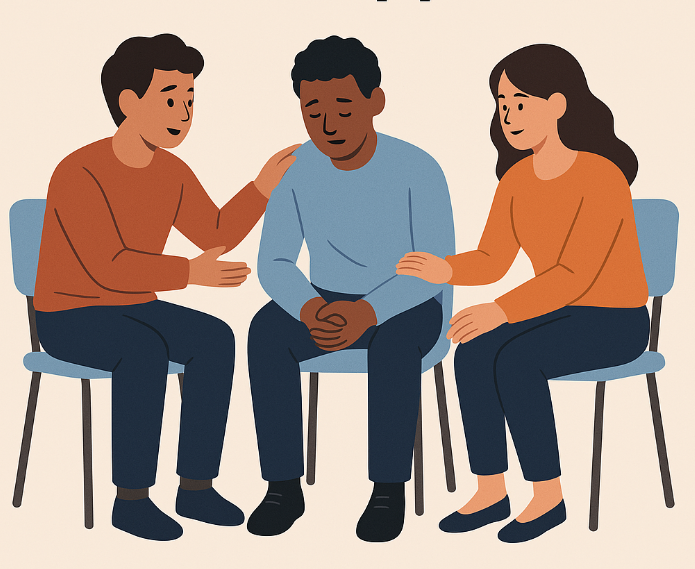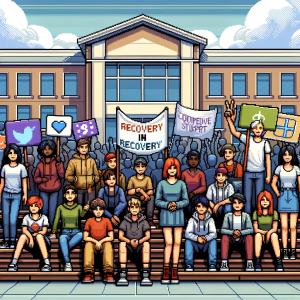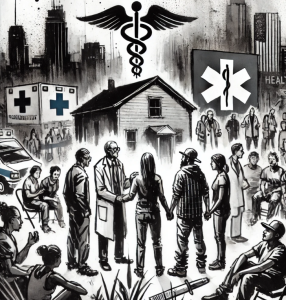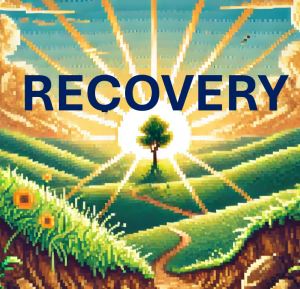
What Happens When Peer Support Workers Burn Out?
What if the very people helping others stay in recovery are quietly burning out—underpaid, misunderstood, and unsupported?
Across the country, peer recovery support specialists—people with lived experience of substance use—are stepping into a powerful role. They’re not just inspiring others to get help; they’re guiding them through it. But while these peers uplift others, new research suggests the system may be failing them.
The Research at a Glance
A team of researchers recently reviewed over 16,000 articles to answer a critical question: How are peer recovery specialists faring in their jobs?
After a rigorous screening process, they found just 20 studies that dove into what it’s like to work as a peer. The results? A mix of hope, strain, and red flags.
These peer workers—often people in recovery themselves—are essential in substance use disorder (SUD) services. They’re embedded in treatment centers, recovery housing, hospitals, and even the criminal-legal system. But their job satisfaction, burnout levels, and ability to stay in their roles vary wildly—and depend heavily on how well their workplaces understand and support them.
Why This Matters Now
The opioid epidemic continues to devastate families and communities. Peer support is one of the few interventions proven to increase treatment retention and reduce relapse. Yet, while peer programs expand, the people at their core face unstable pay, role confusion, and emotional exhaustion.
Without systemic change, this workforce could unravel—just when we need it most.
The Double-Edged Sword of Lived Experience
Peer specialists offer something no clinician can: lived empathy. They’ve been there. That’s their strength—but it’s also a source of strain.
Peers describe their work as deeply meaningful. Helping others reminds them why they’re in recovery. But it’s also draining. Boundaries blur. Burnout builds. And when colleagues or supervisors don’t understand the peer role, peers are often sidelined, siloed, or asked to do tasks that don’t reflect their value—like paperwork, security, or tech support.
Imagine being trained to guide someone through addiction recovery, only to be treated like an intern.
Real Talk: What’s Hurting Peer Workers?
The scoping review uncovered several major barriers:
- Burnout is common, especially among full-time peers or those in rural areas.
- Role confusion leads to peers being misused or marginalized in their organizations.
- Low wages and unstable funding make peer work feel unsustainable—even for those who love it.
- Stigma lingers, even inside the workplace. Some peers hide their recovery journey to avoid judgment from clinical staff.
- Lack of career advancement leaves experienced peers stuck, despite their expertise.
And yet, many stay. Why? Because they believe in the mission. Because their work gives them purpose. Because no one else does what they do.
What Helps? Organizational Culture Matters
The studies show that peers thrive when organizations get three things right:
- Recovery-Oriented Culture: Time off for meetings. A non-punitive approach to relapse. Recognition that recovery is ongoing, not past tense.
- Supportive Supervision: Supervisors who check in, value peer expertise, and talk about self-care help reduce burnout and build trust.
- Sustainability and Growth: Career ladders, skill development, and fair wages aren’t just nice to have—they’re necessary for long-term retention.
Peers also benefit when they work alongside others like them. Isolation—especially during the pandemic—worsened burnout. But peer-to-peer connection builds resilience.
What You Thought You Knew…
It’s easy to assume peer workers are doing fine. They’re passionate. They’re tough. They’ve overcome so much.
But this research tells a different story. Passion doesn’t pay the bills. Toughness doesn’t prevent burnout. And recovery is a journey, not a shield.
The peer workforce is at risk—unless we act.
What’s Next for Policy, Practice, and Research?
There’s growing momentum to support peers, but we still need:
- Longitudinal studies to track how peer roles and well-being evolve over time
- Workplace-specific research to understand challenges in hospitals vs. community orgs
- Equity-focused analysis—why do Black or non-white peers report lower job satisfaction?
- Policies that protect peer roles from being undermined or underpaid
Advocacy groups like the National Association of Peer Supporters (N.A.P.S.) and Faces and Voices of Recovery are stepping up. But it’s going to take buy-in from every level—supervisors, funders, clinicians, and communities—to ensure this workforce can keep doing its life-saving work.
Join the Conversation
How does your organization support peer workers?
What changes would help peers thrive—not just survive—in their roles?
If you’re a peer, what has made the biggest difference in your job satisfaction?
Let’s keep this conversation going. The people supporting recovery deserve recovery-supportive systems.
Don’t Wait – Stay Informed, Drive Change!
Public health needs your voice today. Join thousands of leaders making a difference by subscribing to This Week in Public Health. Get powerful updates and tools to create impact.
🔥 Every second counts! Share this blog now to expand our reach and strengthen our movement.



